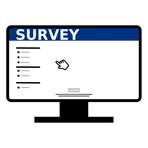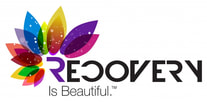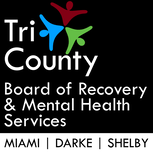Your input is requested
The Ohio Association of County Behavioral Health Authorities ROSC Implementation Committee, along with researchers from The Ohio State University, have launched a statewide ROSC Survey. This survey will measure the progress communities have made in creating local Recovery-Oriented Systems of Care.
The survey is open to all and we encourage everyone to participate. CLICK HERE TO ACCESS THE SURVEY The survey will be open until August 1, 2018. Results from the survey will provide county-level and state-level data to show the impact of recovery work being in completed in local communities. Read more about Recovery Oriented Systems of Care below. |
Are you a member of or staff for a county behavioral health board? |
Recovery Oriented System of Care (ROSC)
|
What is ROSC?
|
Objective: “Change the conversation”
Mental illnesses and addiction disorders are chronic illnesses.
Mental illnesses and addiction disorders can be successfully treated.
Recovery is worth celebrating.
ROSC and Strategic Planning
|
The Tri-County Board utilized its 2017-2019 Strategic Planning process to roll out ROSC to the community and to determine the level of familiarity and preparation for the implementation of the core ROSC principles within the three-county service area. The Tri-County Board of Recovery and Mental Health Services staff developed questionnaires and survey tools with Brown Consulting which included questions pertaining to a Recovery Oriented System of Care familiarity, critical components, local linkages, opportunities, challenges and threats to a ROSC in the three-county area, as well as community openness to creating a “culture of change” and the community having a voice in the design and evaluation of a Recovery Oriented System of Care.
The survey was administered through:
On Line Survey | Stakeholder Interviews | Focus Groups Data Analysis
|
Focusing on clients and families Target groups identified to participate in the ROSC/Strategic Planning process:
|
Key Findings
Strengths
|
Opportunities for Improvement
|
Action Steps
- Explore the expansion of the Centralized Service Facility concept to all counties. Complete the One Wellness Place project with an enhanced Front Door Experience that will greatly assist consumers, family members and referral sources in their search for relevant services.
- Pursue Ohio Recovery Housing certification for all four of the Board-funded Recovery Homes in the Tri-County service area.
- Explore additional opportunities to add recovery housing to the catchment area.
- Implement the Tri-County Board 2017–2019 Strategic Plan which includes ROSC principles.


